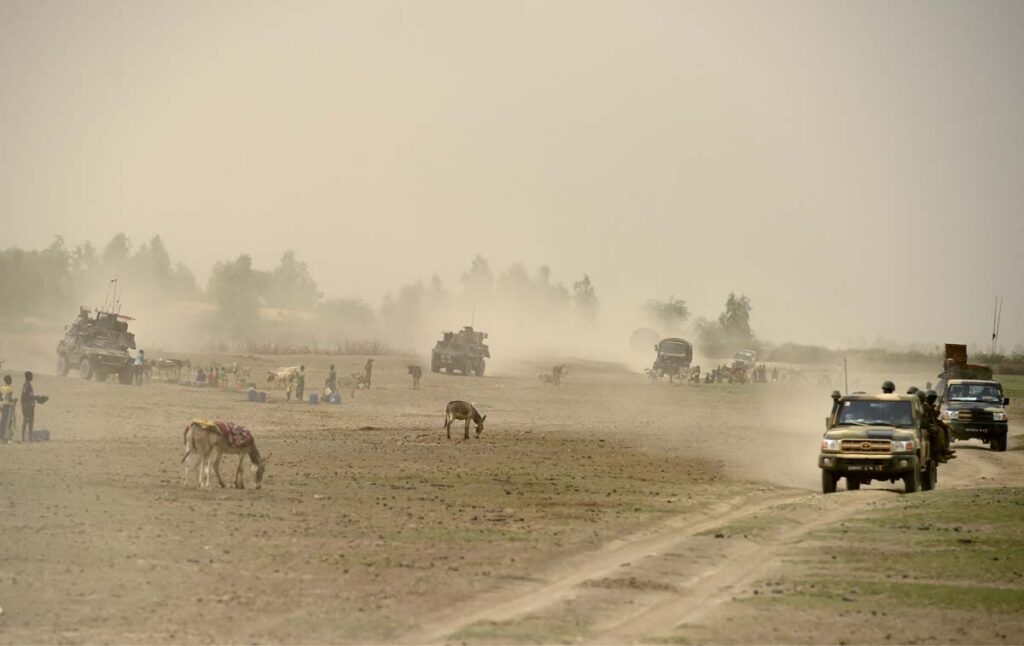West Africa’s Sahel region has long been a principal reference zone for debates and policy initiatives on security rooted in instability and violent conflict. With a regional expanse across states like Mali, Niger, Burkina Faso, Chad, and Mauritania, this semi-arid belt features interlinked, multifaceted socio-political and economic dynamics. These manifest themselves as brittle democracies, fragile structures of state, poverty, climate-induced challenges, societal fault lines exacerbated by historic social cohesion difficulties, and having to contend with persistent threats from violent extremist groups, organised crime syndicates, and new geopolitical manoeuvres.
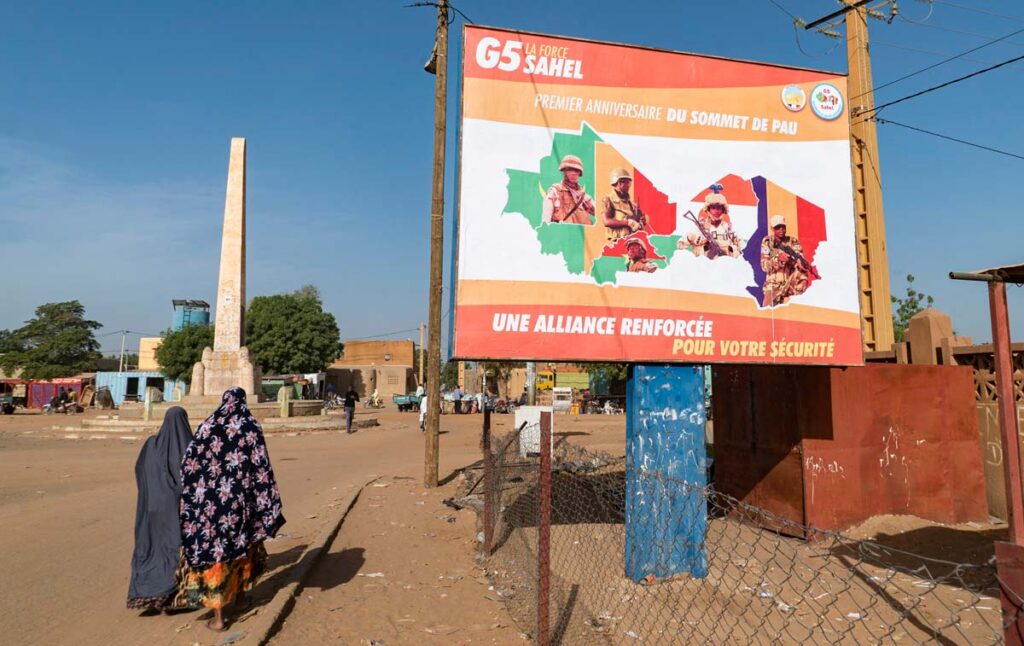
The international community conventionally interrogates and attends to the predicaments in the Sahel mainly from the conceptual perspectives of “insecurity, which privileges counterterrorism and martial interferences”, and externally crafted and imposed “aid packages”. Nevertheless, this philosophical conceptualisation of insecurity and ancillary security imperatives is narrow and, as such, incapable of illuminating and addressing deeper structural tendencies that degrade life in the Sahel. Is life in the Sahel that bad and unbearable?
Against this background, this article seeks to reframe how Sahelian (in)security discourse is conceptualised by making a case for an organic peace regime whose architecture is embedded in local ontologies, knowledge transmission systems, and ancillary indigenous praxis. This perspective is anchored on the conviction that sustainable peace cannot be externally crafted and locally coercively imposed. For peace to be enduring, it must be generated organically from the self-framed lived experiences of local communities with acute recognition of the basis of community resilience, cultural assets of solidarity, and historical experiences garnered in peace and times of crisis. By shifting the discourse of Sahelian (in)security from one of mere episodic crisis management to one of self-created transformative peace construction as a public good, philosophically germane spaces of deliberation will be made accessible for the “victims” and “perpetrators” and other actors to agree on the basis, nature, and prescription of what deep holistic peace should entail.
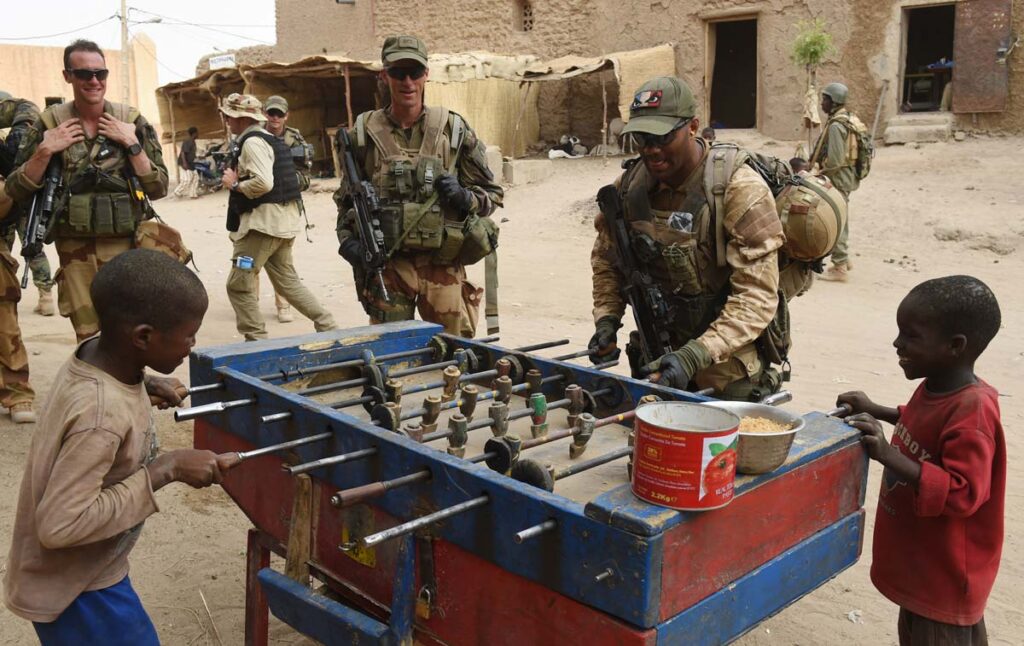
To efficiently appreciate security dynamics in the Sahel, the region’s history must be put in perspective as it mirrors present-day events. The area has hosted the Songhai, Ghana, and Mali empires, among others, in the past. The inhabitants have lived and traded with both the North and the West over the centuries. Kings and chiefs have provided succour and governance for their prosperous territories and people using methods and resources emanating from themselves. Insecurity has not always been the status quo of the Sahel. The root causes of present-day Sahelian insecurity, therefore, need some examination. The following stand out among the legion of such factors worth considering:
Modern state-society disconnect and weak spatial governance
There is an acute disconnection between the government (the state) and the citizenry (society), where the state often lacks the capacity or agency to effectively provide its citizenry with or empower them to provide life-enhancing services, preserve order, and nourish the diverse aspirations of populations, leading to widespread dissatisfaction and a corroded sense of conviviality. Given that responsive institutions only thrive in contexts of cohesion, even if minimally, a disconnection between state and society directly translates into reducing spaces under sovereign control and festering anti-social elements in so-called “ungoverned spaces.” It is worth noting that in recent times, it has become the norm to have terrorist armed groups step in to provide support to communities where state law enforcement agents have conducted violent operations and left the locals in hardship.
The amplification of the strain of aridity in the Sahel
The arid ecology of the Sahel, featuring high temperatures, protracted droughts, and desertification, exacerbates the scarcity of natural, life-enhancing resources. Under such conditions, conflicts over grazing lands and water between farmers and herders tend to spike ripening conditions of disaffection that (transnationally) aggrieved actors can exploit. The gradual loss of life around the Lake Chad basin is thus worrying.
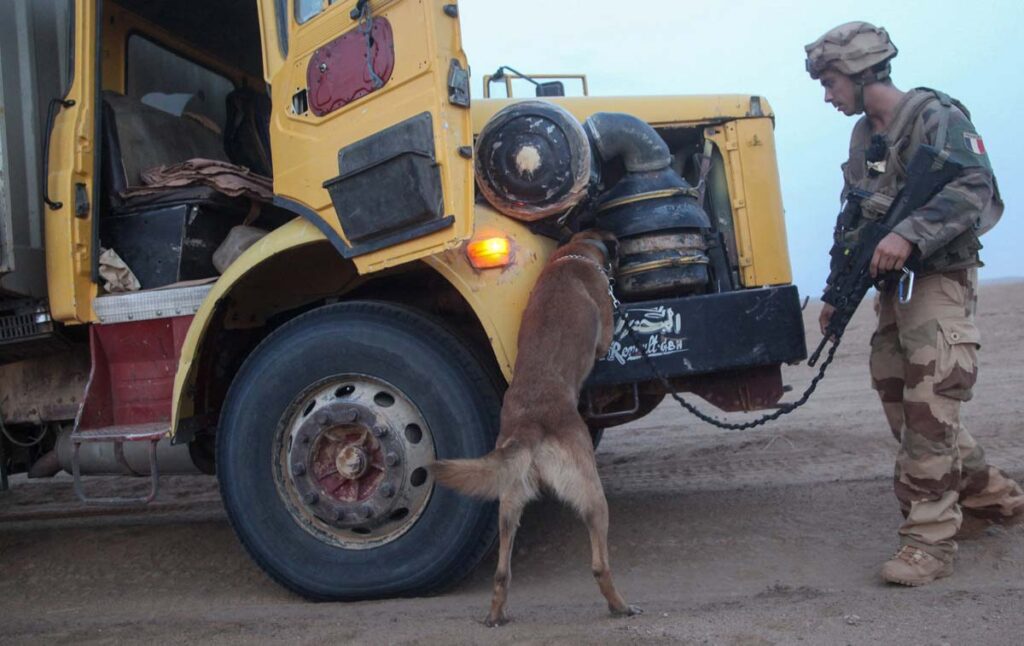
The relegation of the role of local interest groups
To the extent that violent conflict animators are often well-known and documented, policy actors tend to adopt short-term technocratic fixes rather than facilitate the acquisition of knowledge from local people or assets that can inform strategies that address the fundamental sources of insecurity. Though important, military operations hardly attenuate the systemic tendencies that often lead to violence. Indeed, coercive policies risk exacerbating differences by alienating interest groups located, either spatially or ideationally, between protagonists.
The over-reliance on foreign experiments
The experiences of highly resourced international organisations such as the United Nations and European Union, the governments of states such as France, and initiatives such as Operation Barkhane and the G5 Sahel Joint Force, which fell short of achieving their publicly stated objectives of combating and disrupting terrorist networks and restoring order, should not be overlooked. It is instructive to note that raw hard power and martial capabilities may be necessary but hardly sufficient in attempting to positively govern turbulent, high-risk situations, especially if long-term conflict de-escalation and normalcy are of the essence.
External (including government) interventions, such as top-down, quick-win, and quick-fix impositions, are often out of sync with local aspirations and capabilities. Such initiatives mature into a collective syndrome of dependency and despondency among states rather than confident, self-reliant structures, which are essential prerequisites for human capital, ideational infrastructure, and institutional development. These policy liabilities can only be addressed in the wake of a paradigm shift anchored on locally engineered interventions, which awaken and empower communities as active agents of their own destiny and not as the peripheral appendages of external experts.
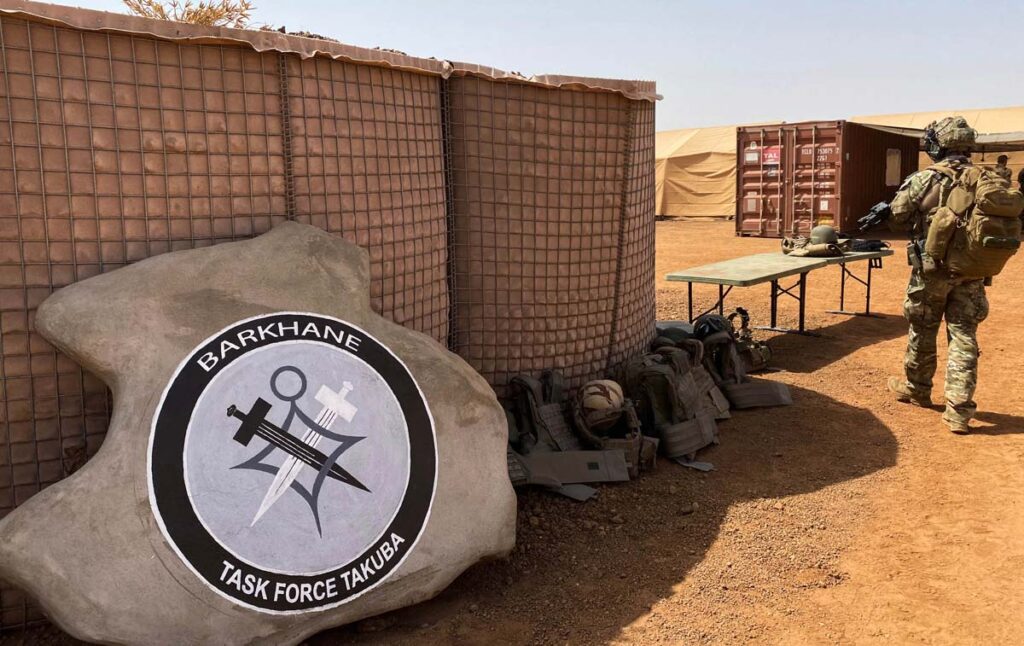
An organic peace architecture involves a bottom-up engineered regime that mobilises and integrates local knowledge and transmission systems, traditions, and governance strategies into an expansive framework for the governance of conflict resolution and reconciliation. This approach is rooted in the conviction that acknowledges that peace is not merely the absence of violence but an incremental dynamic process that nurtures social cohesion and shared purposes amid conflict, even if intractable.
Deliberation in good faith, not mere consultation, is key to fostering a culture of education and uncovering potential areas of agreement and collaboration. Local organisations, traditional authorities, and civil society constituencies have a critical role in initial mobilisation, the structuring of disputes, the identification of trigger issues, and actors amenable to building trust. The intimate knowledge of such locally rooted actors in turbulent contexts makes them vital partners in peacebuilding efforts and vigilant guardians of the process.
Across the Sahel, many constituencies have a heritage of time-tested dispute resolution strategies anchored on customary laws and mediation practices. Stimulating these mechanisms can match formal judicial systems and revitalise culturally relevant forms of justice. Further, addressing poverty and unemployment through joint local initiatives is crucial for stemming vulnerability to extremist mobilisation. Investments in communal agriculture, small businesses, and vocational training can create pathways to shared prosperity.
Additionally, a people-to-people para-diplomacy under the joint auspices of the Economic Community of West African States and the Alliance of Sahel States could project the shared history of a people artificially divided and confined within the boundaries of post-colonial states. Furthermore, initiatives such as the Great Green Wall of Africa can be facilitated to reduce the stress of aridity and its disruptive amplifiers.
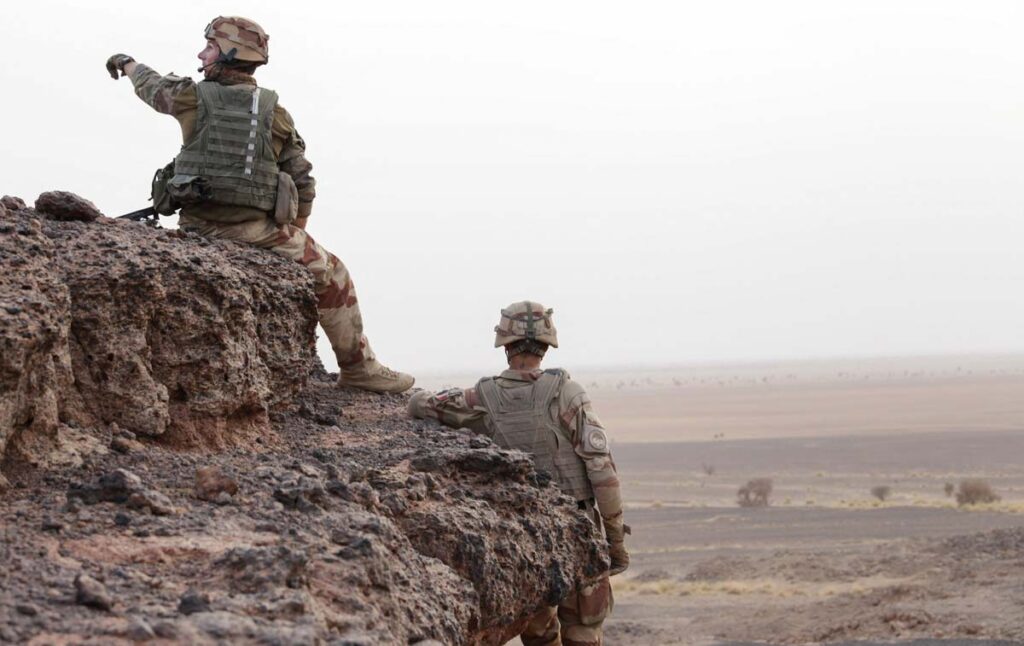
The process of transitioning from violent relations to one of organic peace is, without doubt, likely to encounter obstacles. Opposition may be enacted by entrenched actors who gain from the status quo. External actors who are unenthusiastic about giving up control may also frustrate the quest for locally engineered peace. Effecting and sustaining local initiatives requires long-term dedication, which may be lacking when there is no sustained threat or commitment to the cause.
These notwithstanding, there are ample reasons for optimism. There is a trend of growing confidence in local inclusive peace engagements, through, for example, women’s advocacy for peace and customary methods of mediation and conciliation. Furthermore, new cost-effective communication technologies have proven valuable avenues for virtual mobilisation and experience sharing across time and space. They can be harnessed to propagate convivial messages of peace and tranquillity to counter insecurity.
The imperative of reframing the discourse on [in]security in the Sahel requires a transition from the perception of the region primarily as a zone of volatility to reimagining it as a creative space of opportunity and agency. An organic peace architecture affords an ideational blueprint for such a makeover by mainstreaming local tangible and intangible assets, while paying heed to the possibilities of convergence in contexts of cultural diversity.
Peace in the Sahel will not be born out of external impositions but crystallised through the collective efforts of its people, as challenging as that may be. As we advance, policy actors should be encouraged to be open-minded and reimagine security beyond a mere absence of violence to include the inherent value of human dignity, solidarity, and aspiration as essential inputs for reconciliation.

Brigadier General Timothy Ba-Taa-Banah
Brigadier-General Tim Ba-Taa-Banah, PhD,is a career officer of the Infantry Corps of the Ghana Armed Forces. He is a lecturer of International Relations, an Alternate Dispute Resolution advocate and practitioner. He is a Security Sector Reform expert. He is the founding editor of the African Journal of Defence, Security and Strategy. He has lived and worked in various parts of Africa that have suffered humanitarian hardships due to conflict. His research interests are in the fields of societal inequalities, defence, and strategy. He is the Director of Ghana’s National Counter Terrorism Fusion Centre. He is a member of the American Society of Industrial Security, the African Mobility Scholars Association and a fellow of the Chartered Institute of Logistics and Transport.

